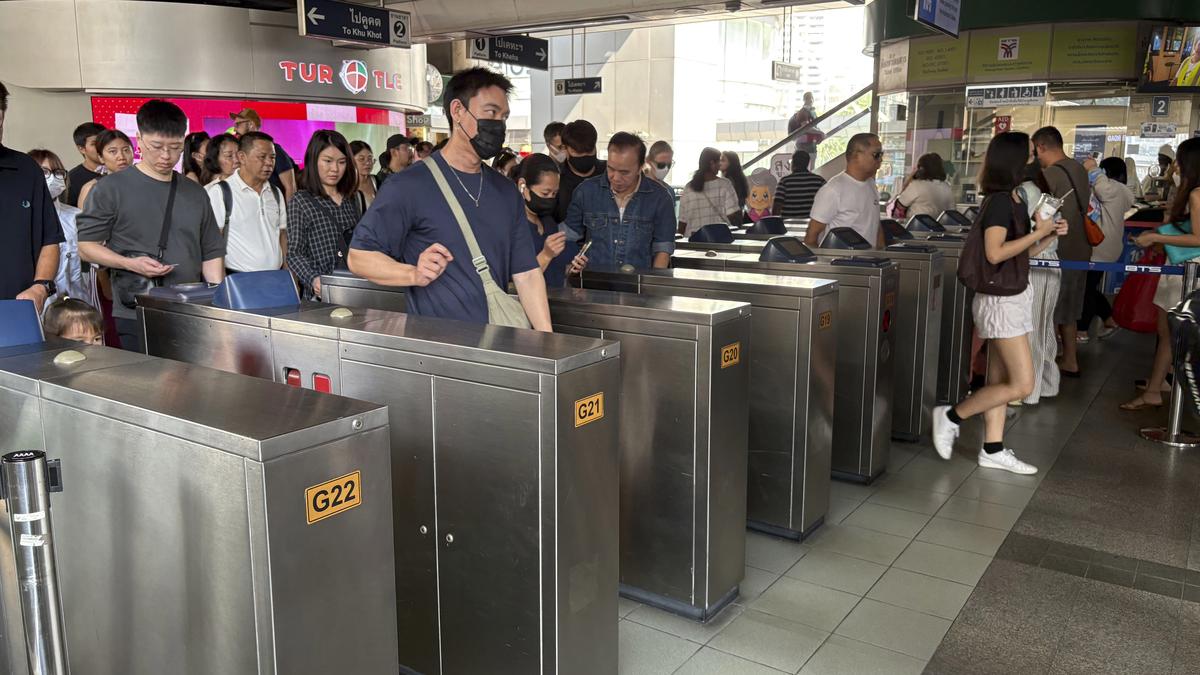Bangkok Chokes on Pollution: Free Public Transport in a Desperate Bid for Clean Air
Bangkok, the vibrant city of temples and bustling markets, is currently battling a severe air pollution crisis. The air quality has plummeted to alarming levels, prompting authorities to take drastic measures. In a shocking move, public transportation across Bangkok has been made completely FREE for a week! Will this unprecedented action finally clear the air?
The Pollution Crisis Gripping Bangkok
For years, Northern Thailand has wrestled with air pollution stemming from forest fires and agricultural waste burning. Now, Bangkok is experiencing the same, with the cooler months exacerbating the problem. Microscopic pollution particles penetrate deep into our lungs, causing both short-term respiratory issues and serious long-term health consequences. This isn't just an inconvenience; it's a health emergency, with experts warning of severe risks for everyone, from children to the elderly.
Causes of Bangkok's Air Pollution Woes
The causes are complex and multifaceted. Car exhaust is a major culprit, but so too are factory emissions and the dust kicked up by construction. With the vast amount of vehicles on the road every day, it's no wonder this bustling metropolis finds itself facing an unprecedented challenge in battling poor air quality. This situation highlights a critical need to seek sustainable solutions and better urban planning policies that protect the health of citizens.
Health Impacts of Air Pollution in Bangkok
Breathing the toxic air in Bangkok is like unknowingly inviting various respiratory ailments, including asthma and bronchitis. The insidious PM2.5 particles penetrate deep into our lungs and affect other organs, with severe and long-term health complications including an increased risk of cardiovascular diseases. What can Bangkok residents do to help mitigate their risk during this extremely challenging period?
Bangkok's Bold Move: Free Public Transport
In a bid to alleviate the crisis, authorities introduced a dramatic solution: free public transport! For a whole week, Bangkok residents can ride buses and trains without charge. The aim is simple: reduce the number of cars on the roads, a major source of pollution. Is this move truly effective?
Is Free Transport Enough?
While the free transport initiative is a welcome and bold step, it's just one piece of a much larger puzzle. It's a short-term solution designed to reduce vehicle emissions immediately, acting as a first-aid attempt for a complex and systemic issue. This tactic provides instant, albeit temporary, relief while more substantial changes and upgrades are worked toward and completed.
Beyond Free Rides: A Long-Term Perspective
Long-term solutions are desperately needed. This includes stricter vehicle emission standards, encouraging more environmentally friendly transportation alternatives, better regulation of industrial emissions, and cracking down on illegal forest fires and agricultural waste burning. Ultimately, finding a long-term solution for such an issue necessitates substantial changes across various sectors and planning.
The International Spotlight on Bangkok's Air Quality
Bangkok's struggles with pollution haven't gone unnoticed on the world stage. IQAir, a Swiss-based commercial monitoring service, ranked Bangkok among the world's most polluted cities. This international attention highlights the urgency of the situation and the need for rapid and effective action. How is the city preparing for an upcoming battle?
Addressing Pollution Through Innovation and Technology
Bangkok authorities must invest in the latest technologies to monitor and manage air quality in real time. Improved real-time air pollution tracking gives the public accurate knowledge of how to best safeguard their health. Additionally, technologies must improve the long-term solution of transitioning into cleaner energies and practices to effectively combat poor air quality.
The Role of Public Awareness and Individual Responsibility
Alongside government efforts, public awareness campaigns can help citizens understand their role in reducing pollution. Encouraging the use of public transport, cycling, or walking can make a collective difference. This is the collaborative part in seeking improved air quality. What small changes could each of us make?
Take Away Points
Bangkok's free public transport initiative is a remarkable attempt to address a dire air pollution situation. But this is merely a temporary band-aid over a larger systemic problem. The long-term solution requires comprehensive changes across the board, from stricter regulations to fostering greater public awareness. It’s a call to action, emphasizing the need for collective effort in tackling environmental challenges.




